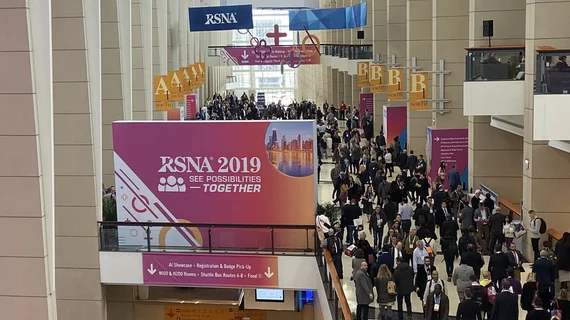RSNA reflects on 2019 annual conference, AI's importance to radiology
RSNA has announced that the official registration number for RSNA 2019 in Chicago was 51,800, with another 6,754 participants registering for the online virtual meeting.
Perhaps the most popular topic at the conference was the continued rise of AI technologies, which are expected to grow even more influential in the years ahead.
“RSNA recognizes the importance of artificial intelligence to the future of radiology research and practice, so we offered our attendees an abundance of AI sessions, posters and education exhibits,” Mark G. Watson, RSNA executive director, said in a prepared statement. “We also expanded our AI Showcase and Theater to include even more innovative products, solutions and presentations from leaders in the field.”

